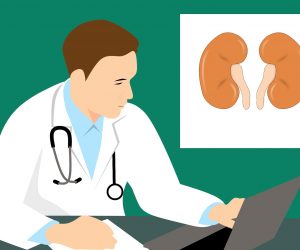
NEW STUDY Shows Listening to Emotionally Significant Songs Improves Cognitive Function
Lori Alton via NaturalHealth365 – Alzheimer’s disease and other forms of dementia continue to impact a tragic number of people throughout the United States. Over 6.5 million Americans are currently affected – and the number is expected to soar to 13 million by the year 2050. Sadly, the Alzheimer’s Association reports that deaths from Alzheimer’s disease have increased by an alarming 16 percent since the onset of the COVID-19 pandemic. Conventionally speaking, there is currently no cure, and pharmaceutical medications have yielded disappointing results – along with unwanted side effects such as nausea, muscle pain, and headaches.
However, scientists at the University of Toronto report that a natural intervention may help improve cognitive function. A just-published study points to the benefits of music for people suffering from cognitive decline. To learn more about the intriguing potential of music to improve cognition and memory, read on.
Benefits of Music Include Improved Brain Function, Landmark Study Shows
In the small pilot study published in the peer-reviewed Journal of Alzheimer’s Disease, patients with Alzheimer’s disease listened to a selection of their favorite songs for an hour a day for three weeks. The songs were chosen because they were “autographically salient,” meaning that they were familiar tunes with personal meaning for the participants. For example, the repertoire might include songs the participants had danced to at their weddings.
All patients underwent MRIs before and after the listening sessions – and the results led the scientists to an extraordinary conclusion. The team reported that regularly listening to beloved songs could change the brain’s neural pathways and improve structure and function.
Listening to Familiar Songs Stimulates the Prefrontal Cortex
Senior author Dr. Michael Thaut, a professor at the University of Toronto’s Faculty of Music and Temerty Faculty of Medicine, reported that listening to music can cause changes in neural pathways – notably in the prefrontal cortex, where deep cognitive processes occur. “(Listening to music) can stimulate neural connectivity in ways that help maintain higher levels of functioning,” Dr. Thaut stated, adding that patients also showed improvement in the integrity of the brain.
Interestingly, listening to music written and performed in a similar style – but with no particular personal meaning – activated an “auditory” network, which meant that it caused brain activity that indicated the act of listening. But, when participants listened to familiar, well-loved songs, the prefrontal cortex activated significantly, indicating cognitive engagement. It seems that the benefits of music include activation of the “control center” of the brain. “Music is an ‘access key’ to the memory and prefrontal cortex,” declared Dr. Thaut.
The researchers concluded that listening to music is an effective way to increase brain plasticity in patients with dementia and mild cognitive decline – and that there is a clinical potential for personalized, music-based interventions.
Benefits of Music Therapy Include Practicality and Low Cost
Dr. Thaut likened the stimulating effect of familiar music to that of a “brain gym.” And, apparently, daily workouts yield the best results – as the therapy is not a “one and done” technique. The research suggested that repeated. Regular listening is necessary to reap the full benefits of music for people with cognitive decline.
Lead author Corinne Fischer, director of Geriatric Psychiatry at St. Michael’s Hospital in Toronto, said that the study showed that a home-based approach to music listening could be beneficial and have lasting effects on the brain. She praised the music-based intervention as feasible, cost-effective, and readily available. Dr. Thaut expressed his belief that the study “opened the door” to further research on therapeutic applications of music for people with dementia.
Support Good Cognitive Function With Other Natural Techniques
According to a study published in 2017 in the Journal of Alzheimer’s Disease, regular physical activity can positively influence cognitive ability, reduce the rate of cognitive aging and even reduce the risk of Alzheimer’s disease and other dementias. Experts say that exercise may increase the production of beneficial brain chemicals, improve insulin sensitivity and reduce inflammation.
Herbs that are believed to help enhance cognitive function include turmeric, ginkgo biloba, and rosemary, which have promoted memory in clinical studies. Rosemary’s close cousin, sage, may hold even more promise. A controlled study showed that rosemary extract inhibits an enzyme that breaks down acetylcholine, an important neurotransmitter needed for memory and learning. Of course, consult your integrative doctor before supplementing.
People have always intuitively realized the power of music to uplift, inspire and console. While larger controlled clinical trials are needed, this intriguing early study helps “roll back the curtain” and reveal some of the science behind that power.
Sources for this article include:
ScienceDaily.com
AlzheimersAssociation.com
NIH.gov
Carewatch.co.uk
To read the original article click here.






